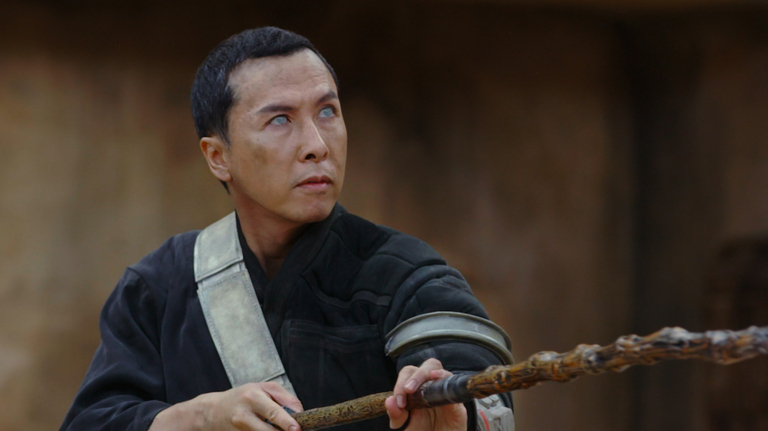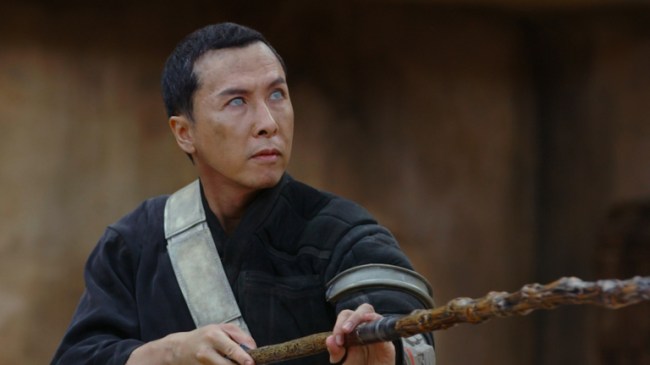Chinese Actors Don’t Have to Settle for Hollywood’s Racism Anymore


The Hollywood Reporter recently published a piece on the ways that China’s fast-growing film market is affecting the power balance between Hollywood studios and Chinese actors. With meatier roles and bigger paydays than ever before back in the PRC, A-list Chinese actors are no longer willing to settle for the uninteresting bit parts that Hollywood wants to give them.
The box office in China has grown exponentially in the past five years, tripling from $2.07 billion in 2011 to $6.78 billion in 2016. As a result, there’s been an explosion in demand for experienced actors–but since the growth occurred so quickly, supply can’t yet meet demand. A-list actors are therefore, according to China Central Television, “vastly overpaid, receiving up to 100 million yuan ($15 million) for a single movie or TV series.”
Movies and TV shows are also made quite quickly in China, with scheduling that makes it possible to work on multiple projects at once. Actors who sign on to a Western film must dedicate more time to that project, while also giving up opportunities for other movies, TV shows, and commercials in China.
And for what? In the past, Hollywood’s offensive “hand them a bit part” approach has not only demanded dull work, but also hurt these actors’ branding with both American and Chinese audiences. As The Hollywood Reporter summarized:
Over recent years, numerous Hollywood tentpoles have cast A-list Chinese stars in minor parts, hoping for a marketing bump in the growing mainland market. The results have usually backfired, with fans blasting the castings on social media as condescending pandering (see the response to Chinese actor Wang Xueqi’s fleeting appearance in Iron Man 3 or Fan Bingbing’s small role in X-Men). The actors themselves have even been subjected to some online ridicule, presenting the real risk that their “Hollywood breakthrough” is doing more harm than good in the market that actually matters to them.
There are some recent exceptions. Jiang Wen and Donnie Yen’s performances in Rogue One: A Star Wars Story, though small, were full of a chemistry that many critics complimented. But it was still a struggle to get Jiang Wen to sign on to the project, and his Star Wars fan son was the one who actually convinced him.
“I keep telling American producers, you need better, more meaningful roles,” Chinese casting director PoPing AuYeung told The Hollywood Reporter. “In the old days, it didn’t matter so much, but it’s changing really quickly — the first thing any actor asks is whether it’s really meaningful.”
One hopes that this economic pressure will force Hollywood to reevaluate its approach to Chinese actors. By treating them as artists instead of box-ticking commodities, they might actually begin to attract talent with the merits of a project, rather than a paycheck–and the influx of new voices and talents could help them to produce interesting, well-crafted films that both American and Chinese audiences want to see. One also hopes that, after being forced to treat Chinese-born actors with more respect, Hollywood could become more willing to cast other Asian and Asian-American actors in a wider range of roles.
Or, more dismally, the big studios could just wait for China’s casting bubble to burst as the supply of actors eventually exceeds the demand for them, and then go back to dishing out exploitative cameos.
Still, one hopes.
(Via The Hollywood Reporter; image via Lucasfilm and Disney Studios)
Want more stories like this? Become a subscriber and support the site!
—The Mary Sue has a strict comment policy that forbids, but is not limited to, personal insults toward anyone, hate speech, and trolling.—
Follow The Mary Sue on Twitter, Facebook, Tumblr, Pinterest, & Google+.
Have a tip we should know? [email protected]